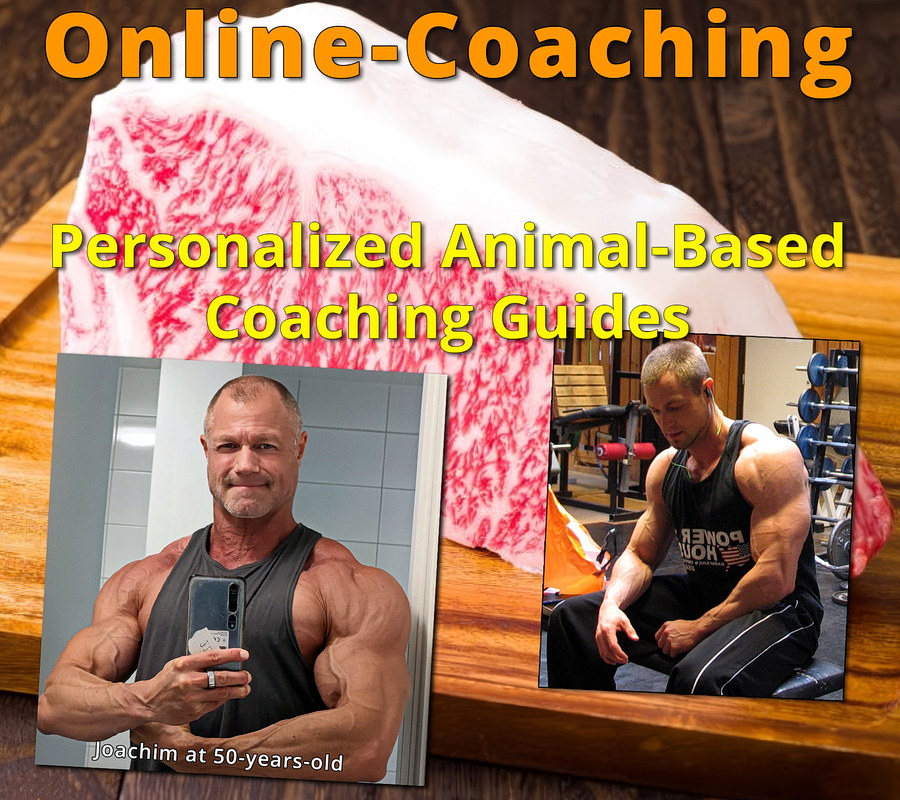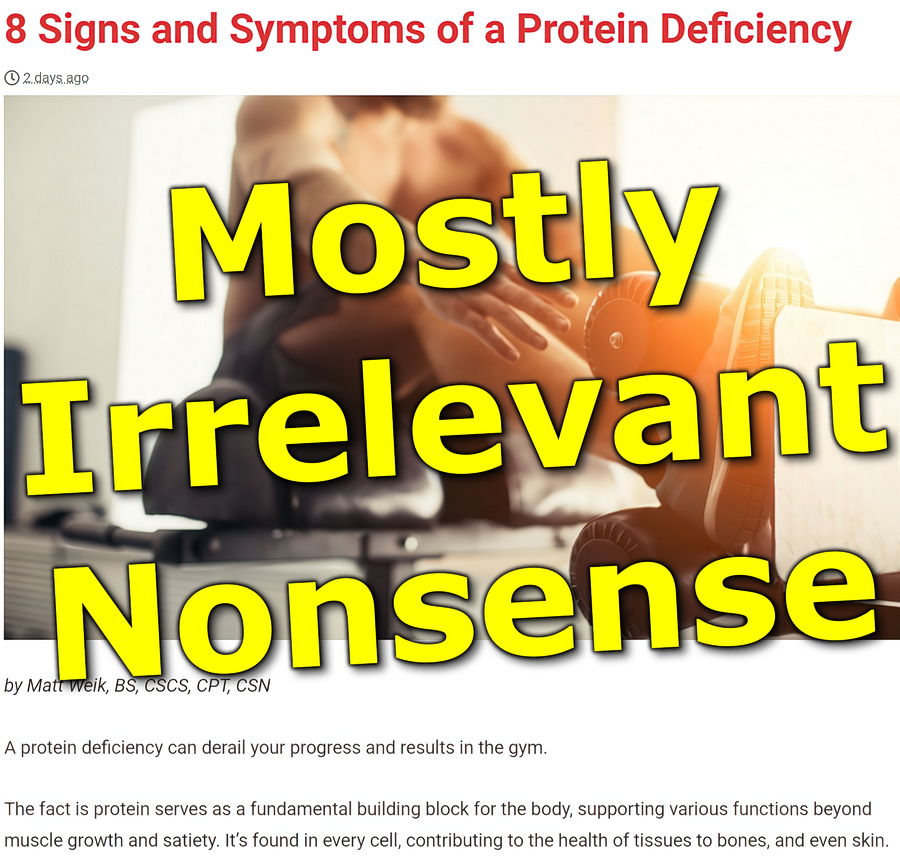Due to “nutrition science,” the pseudo-science that was invented, made-up and turned into complete nonsense by the Food Industry, the Medical Community, and the Pharmaceutical Industry, people have been conditioned into thinking in terms of macronutrients (fat, protein and toxic unnecessary carbohydrates) instead of essential nutrients, their bioavailability and food synergy.
If you take a look at any health-, fitness-, or survival tv-show, the only things you will hear on repeat are “calories” and “protein.” In the past, this was a phenomenon of the fitness industry, as protein is the building block of muscle. However, most people will get enough protein even on a shitty diet. What they will not get though, and what is critical for our health, are animal fats, as in saturated fats and cholesterol, and all other essential nutrients that are not even available in toxic plant-based and processed slave food.
And, of course, animal-based foods are the only foods that are free of toxins, while a single plant-based food can contain anywhere from 30 to 200 or more different toxins, all of them damaging our body. So, the plant-based diet is the perfect tool to keep you weak, sickly, dumbed down, and easy to manipulate and control. No wonder they push that evil everywhere.



So, it comes at no surprise that one of the biggest shills in the industry, the man who also has showcased one of the lowest IQs I’ve witnessed among online fitness writers (with the exception of vegans, of course,) recently posted an article about “protein deficiency.” And to make it all very comical, this article came out only days after he had pushed the deadly fruitarian diet, a diet that has virtually no protein in it at all. Such hypocrisy.
Yes, I’m of course talking about Matt Weik of Ironman Magazine. So, let’s see what silly claims he made this time.
“The fact is protein serves as a fundamental building block for the body, supporting various functions beyond muscle growth and satiety. It’s found in every cell, contributing to the health of tissues to bones, and even skin.”
Yes, protein is in every cell, and guess what? So is saturated fats and especially cholesterol. While you will survive on barely 1 gram of protein per kilogram of bodyweight, as in 0.45 grams per pound, at least 20% of your energy intake should be from animal fats, as in saturated fats, for sustaining bodily functions and maintaining health. That’s between 40 and 50 grams of animal fat daily for most people on an average diet. The modern Western diet provides on average about 13 to 22 grams of animal fat per day, which is way too low, and people are wondering why they are sick and tired all the time. And to add to this, evil institutions, such as the American Heart Association (AHA) pushes for a dietary pattern that limits saturated fat to 5-6% of daily calories (where at least 20% is recommended by all research!)


With that said, we know that humans are obligate hyper carnivores and that we should run on a fat metabolism to be healthy and thriving. We also know that any kind of fat from plants, as in seed- and vegetable oils are extremely unhealthy and damaging to our physiology. So, that means that we are supposed to be on an animal-based ketogenic diet, and thus get at least 70 % of our energy intake from animal fats, as in saturated fats. That is what is optimal for us, what our physiology is constructed for. And this is what needs to be put forth to the masses, not silly articles about “protein deficiency.”


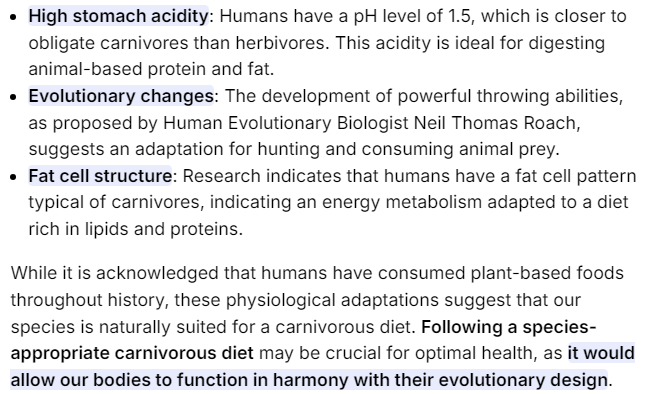
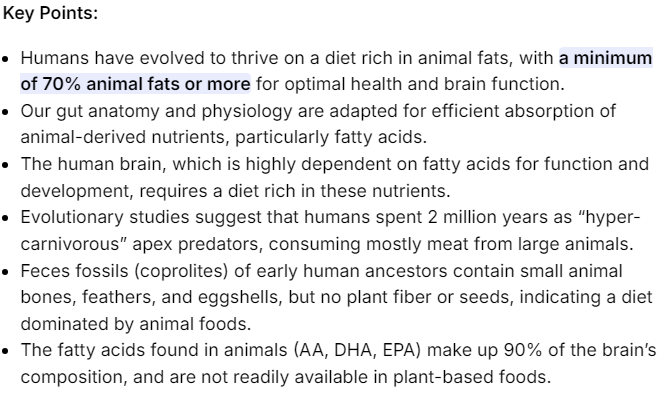
“While protein deficiency symptoms exist, they are uncommon in individuals residing in developed countries with access to diverse food options. For instance, a protein deficiency in the US is rare but not out of the realm of possibilities.”
Exactly, so why did you even bother to write an article about it?
“Although protein deficiency is rare in such contexts, understanding its signs remains important. This knowledge helps us to ensure we maintain an adequate intake of this essential macronutrient. From muscle repair to hormone production, protein plays a crucial role in overall health.”
If you actually would achieve a “protein deficiency,” which is only possible if you are a full-blown retarded vegan, fruitarian, or an ultra-processed food junkie, you would encounter a lot of other symptoms from other nutrient deficiencies which all will be just as detrimental. So, simply getting a little more protein will not help in any way. It’s not the protein that is the problem, it is the entire diet that is the problem.
In other words, if it goes so far that you have a protein deficiency, you will have a lot of other deficiencies as well, because if you consume enough animal-based foods to remain healthy, it is impossible not to get enough protein — so, the only thing that will help in such a scenario is a lot of animal-based foods.
To conclude, it’s better to educate people on what they actually should be eating as a human species, instead of pushing a single macronutrient as in protein.
What is a Protein Deficiency?
“A protein deficiency arises when your intake fails to meet your body’s needs, impacting millions worldwide, especially in Central Africa and South Asia.”
Yes, it is only prevalent among starving populations that are being force fed minimal amounts of plant-based crap, such as rice or grains, instead of animal-based foods.
“Symptoms range from subtle changes to severe issues, such as edema and skin lesions.
Monitoring protein intake and addressing a protein deficiency promptly is crucial for overall health and well-being.”
Again, if you would notice symptoms of protein deficiency, there will be a multitude of other problems as well. And if so, you should not focus on your protein intake, you should focus on changing your entire diet, as in focusing on animal-based foods.
8 Symptoms of Protein Deficiency
1. High cholesterol
“High cholesterol and triglycerides stem not only from fatty foods but also from inflammation, hormonal imbalances, and diets rich in processed and sugary items.
Substituting protein-rich foods with sugary snacks and refined carbs can hamper fat processing by the liver and cells, leading to increased cholesterol levels.
Research suggests a potential inverse correlation between protein consumption and heart disease risk. Hence, prioritizing protein-rich foods may help maintain heart health and manage cholesterol levels.”
I’ve covered this many times. Your body controls your levels of cholesterol depending on need and availability. If cholesterol goes up, it’s because your body is trying to heal tissue damage. And if your diet is so low in animal-based foods that you experience protein deficiency, that means that it is high in plant-based crap and carbohydrates, and likely seed/vegetable oils, which means a ton of damage to your body. So, if your body still can produce cholesterol, and/or if you still get some from your diet, levels will be elevated as your body is desperately trying to keep up and repair itself from all the damage from your idiotic diet.


2. Edema or swelling
“Kwashiorkor, characterized by bilateral swelling, is primarily linked to low albumin levels in the body. Albumin helps in maintaining fluid within blood vessels.
Insufficient albumin leads to an imbalance in fluid distribution, prompting the body to retain more water and sodium, resulting in swelling.”
Kwashiorkor is a state of extreme malnutrition. Not only from lacking protein in the diet, but especially animal fats and essential micronutrients. It is usually seen in starving infants and children. And thus, it’s totally irrelevant to an article aimed at a western population, unless someone followed your latest retarded article and became a fruitarian.
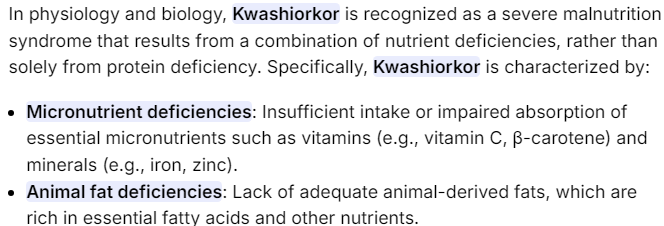

3. Fatty liver
“Fatty liver, seen in kwashiorkor, involves fat buildup in liver cells. If untreated, it may lead to fatty liver disease, causing liver inflammation and scarring.
While commonly associated with obesity and excessive alcohol intake, it can also occur in cases of protein deficiency. Impaired synthesis of fat-transporting proteins might contribute to this condition.
Understanding these factors highlights the complexity of kwashiorkor’s effects on the body.”
Again, kwashiorkor is not relevant to anyone. Even a vegan or a fruitarian would likely quit their retarded diet (or cheat with eggs, fish, etc.) before reaching that state. At least, that is what I’ve seen in all the 80+ ex-vegans I’ve helped.
And again, fatty liver from extreme malnutrition is not only from the lack of protein, it’s from the lack of all essential nutrients that the liver needs to function.
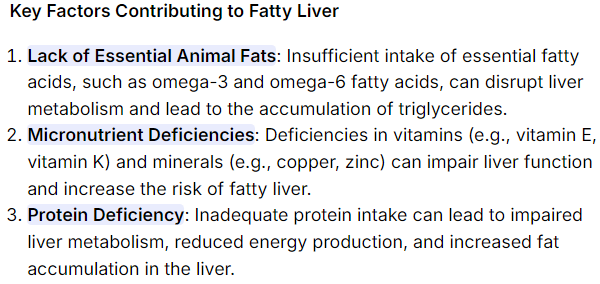
4. Mood swings
“Protein is essential for neurotransmitter production in the brain. Amino acids, the building blocks of protein, form many neurotransmitters.
Insufficient protein intake can restrict neurotransmitter synthesis, affecting brain function. Low levels of neurotransmitters like dopamine and serotonin, influenced by protein deficiency, may lead to mood disorders such as depression or aggression.
Hence, it is advised to take enough protein to support brain health at its best as well as neurotransmitter balance.”
Yes, but guess what is even more important for brain health? Yes, animal fats, and especially cholesterol. Your body can still break down tissue to get the amino acids it needs to maintain brain function, at least for a very long time. But if you do not get enough animal fats, you will become mentally ill long before you notice any additional problems from protein deficiencies. So, again Matt, you totally fail by not looking at the big picture. While protein is important, this is cherry picking as a lack of animal fats will manifest problems long before a lack of protein does.

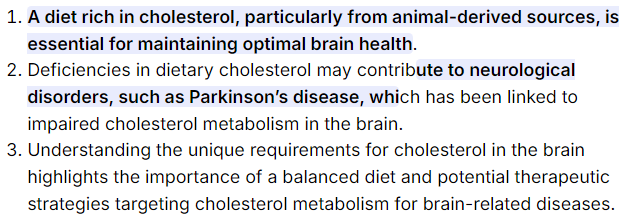

5. Muscle loss and weakness
“Skeletal muscle is the muscle that is attached to the bones. It is the type of muscle that helps our body move, which is why preventing a protein deficiency is vital.
When you consume high amounts of protein, it helps build and maintain skeletal muscle mass and strength.
The human body breaks down skeletal muscle tissue for energy consumption when there is not enough protein to use. This can lead to muscle atrophy, and even minor muscle loss can affect your strength and movement.”
Yes, this is what happens with vegans and the like, and those living on highly processed junk, becoming “skinny fat.”
Still, for anyone with the slightest interest in working out, as the average reader of your awful website, this should not really be a concern.
6. Hair, nail, and skin problem
“Hair, skin, and nails rely heavily on proteins such as elastin, collagen, and keratin for their health and integrity. Low protein intake and a protein deficiency can lead to issues like brittle or thinning hair, dry and flaky skin, and deep ridges on fingernails.
While diet isn’t the sole factor, ensuring sufficient protein intake is crucial for maintaining the health of these tissues.”
And you can only get these vital proteins from animal sources. This is why vegans look like rotting zombies and they age twice as fast. There is no nutrition in plants that can nourish your body, much less your skin and organs.


So, again, do not focus on protein, focus on educating about real food, as in animal-based food. It is the only way to get all the essential nutrients you need while covering your protein requirements with ease.
7. Weakness and fatigue
“Low protein intake may not immediately affect your energy levels or strength within a day, but over time, it can lead to muscle breakdown as your body attempts to compensate. This also leads you down the path to a potential protein deficiency.
Weakness and fatigue are among the earliest signs of protein deficiency, particularly concerning for older adults.
Research suggests that insufficient protein intake is associated with frailty in individuals aged 60 or older, characterized by weakness, low energy, and unintentional weight loss.”
Yes, this might be the first valid point you’ve made, that of elderly people. However, the problem is still that of a backwards diet, that of not getting enough animal-based food. This is also why we see memory problems and other cognitive issues in the elderly, because their brains are starved from not getting enough animal fats and cholesterol. Again, it’s about getting all essential nutrients, not only focusing on protein.
8. Poor sleep
“Unstable blood sugar levels, coupled with increased cortisol and reduced serotonin production, can contribute to poor sleep and insomnia.
Carbohydrates lead to higher insulin levels compared to fat or protein. Consuming protein-rich foods before bedtime helps in tryptophan and serotonin synthesis while having minimal impact on blood glucose levels.
Moreover, protein slows the absorption of sugar during meals, promoting more stable blood sugar levels throughout the night.”
First of all, you should never consume carbohydrates. I’ve covered this in hundreds of articles. And secondly, you should never have a meal close to bedtime, as you want to go to sleep in a fasted state so your body can detox and heal during the night, as it is supposed to do.
And if you follow our natural human diet of animal fat and protein, your blood sugar levels will be rock stable, as they will be managed by gluconeogenesis, and not unnaturally elevated by consuming toxic carbohydrates.
All you need is one to three balanced meals a day, as in animal fats and protein, and you will sleep like a baby.
And with that, Matt ended his article, and I can’t possibly see how any of this helped or educated his readers. However, hopefully my additions added something of value and also helped in re-educating any new readers and followers in how to think and see the larger picture.
If you need help with your health, nutrition, and/or transitioning from your current way of eating to our natural species-appropriate, species-specific way of eating, I’m available for both coaching and consultation.
And if you found the article and my insights helpful and enjoy my free information, please consider donating to help pay the webhosting bills and keep the site running. And if you’re interested in discussing and sharing information with likeminded people, consider joining our uncensored community at Ungovernable.se. Thank you!

